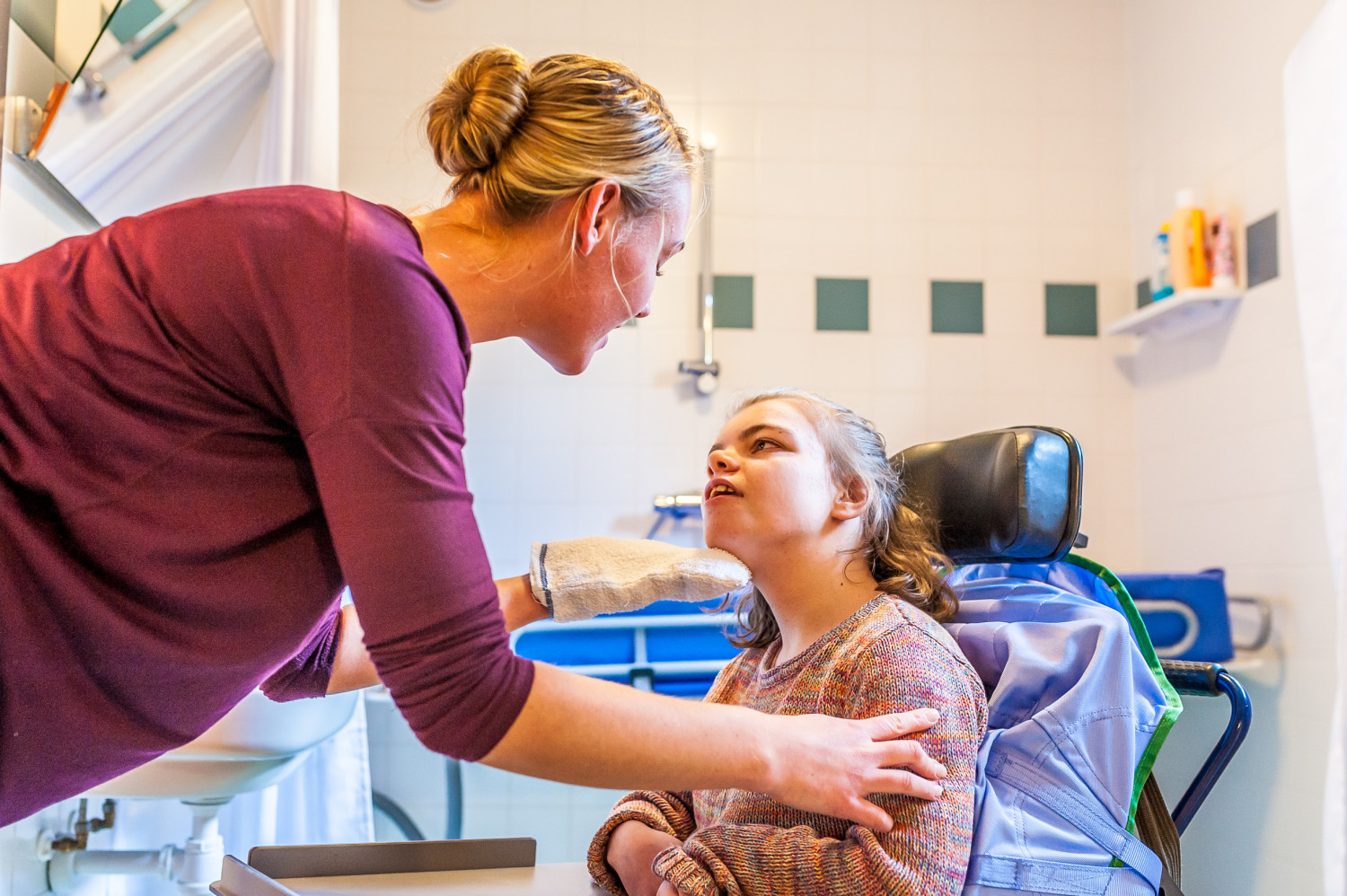How to Become a Support Worker In Australia
8 March, 2024
If you're considering a career change later in life, or perhaps even starting out in the work force, you may be thinking about becoming a support worker.
For many people who feel the calling to make a tangible difference in people's lives, becoming a support worker can be a great option. Support workers are currently in high demand across Australia and a career as a support worker can be extremely worthwhile and rewarding.
However, it can be difficult to work out how to start your journey to becoming a support worker. Many people become confused about what the role involves, what qualifications are required and how to navigate the job interview process.
In order to address these concerns, we decided to create this handy guide on becoming a support worker. We hope it will help you pursue your goals in this valuable and satisfying career.

What Does a Support Worker Do?
Before delving into the journey of becoming a support worker, it's crucial to understand the role and what might be required of you. Support workers offer daily assistance, social support, and personal care to individuals in need.
This could encompass a wide spectrum of tasks ranging from helping with daily activities such as dressing, bathing, and meal preparation, to offering companionship and going on outings together.
It's also important to realise that support people can assist older people, or people with disabilities or do a combination of both. Each group requires different supports and and an approach that's specific to them. You may choose to primarily focus on becoming a disability support worker or work with older people.

What Qualifications Do Disability Support Workers and Aged Care Support Workers Need?
It is not always essential to have a specific formal qualification to become a disability support worker or an aged care support worker. While formal qualifications will certainly assist you in your journey to become a support worker, they are not required by most employers.
However, certain personal qualities and skills are always necessary. A desire to help others is fundamental, as are empathy, patience and great communication skills. In addition, being adaptable and capable of handling challenging situations are a must.
Importantly, some employers like Focus Care provide high quality in house training and this can help you fill in any knowledge gaps you may have when you begin work as a support worker. Therefore, it's always worth asking potential employers about the training opportunities they offer.
Hands-on experience is also invaluable for a potential disability support worker or someone looking to work with older people. Any experience you many have had providing individual support as a carer in your personal life will be relevant to your future role.
Also, it's worth considering volunteering at local community centres, or disability support organisations. Volunteering not only allows you to acquire relevant experience but also provides an opportunity to network with professionals in the field and gain valuable references.
You will also be required to undergo an NDIS worker screening check and if you are working with children, a working with children check.

Standard Qualifications For a Disability Support Worker or an Aged Care Support Worker
While formal qualifications aren't always mandatory to become disability support workers or aged care workers, they significantly enhance your employability and competence in the role. Pursuing a qualification in Individual Support, Disability, or Aged Care equips you with essential knowledge and skills required for the job. These courses cover topics such as providing personal care, supporting independence and well-being, and understanding the complexities of disabilities and aging.
Certificate III or IV in Disability
A Certificate III or Certificate IV in Disability Support equips individuals with the knowledge and skills needed to become disability support workers and provide care and assistance to people in need. Modules cover communication and interaction, personal care and independence, health and well-being, community participation, safety and risk management, and client assessment and care planning.
Certificate IV in disability explores topics such as behaviour support, assistive technology, employment support, and legal and ethical considerations. A Certificate IV in disability extends the topics covered in a Cert III.
Certificate III or IV in Ageing Support
A Certificate III or IV in Ageing Support provides individuals with the knowledge and skills necessary to offer comprehensive care and support to elderly individuals. Certificate III modules cover areas such as personal care, health and well-being, social and emotional support, safety and risk management, and legal and ethical considerations.
Certificate IV builds upon this foundation with topics such as client assessment and care planning, leadership and supervision, dementia care, palliative care, and advocacy.
Certificate III in Individual Support or Certificate IV in Individual Support
A Certificate III in Individual Support or Certificate IV in Individual Support is aimed at providing individuals with the knowledge and skills necessary to offer personalised care and assistance to a diverse range of clients, including the elderly and people with disabilities. Both a Certificate III in individual support and a Certificate IV in individual support are suitable for those wishing to become disability support workers or work with older people.
Diploma of Community Services
This provides a broader scope of training that goes beyond the specific requirements of a disability support worker. It includes topics such as case management, community development, advocacy, and program coordination. A diploma requires a longer duration of study and involves more in-depth assessments and practical experience than the other qualifications listed here and is goes beyond what is strictly necessary for a support worker. It prepares graduates for leadership roles within the aged care, disability or community services sector.

How Do I Find Support Worker Jobs?
Once you feel as though you're ready to dive into a disability support worker job or a role working with older people, it's time to embark on your job search journey.
A great way to explore disability support worker jobs or job opportunities supporting older people, is to directly contact organisations offering support services like Focus Care.
Another great way is through online job portals such as Seek. In addition, you can work with recruitment agencies specialising in healthcare and contact national disability services.
You should tailor your resume and cover letter to highlight your relevant skills, experience, and passion for supporting others. Information and support in this process is usually provided through State Government agencies.
How Do I Prepare For The Interview?
Thorough preparation is key to making a positive impression in an interview context. Familiarise yourself with common interview questions that a disability support worker or aged care support worker might be asked and think about how you might answer them.
Emphasise your empathy, communication skills, and ability to work collaboratively in a team. If you have any relevant experience caring for someone in your personal life, this may be a good thing to talk about in an interview.
Additionally, be prepared to discuss scenarios where you've demonstrated your problem-solving abilities and adaptability in challenging situations.
One again, state-based agencies can help with your preparation for your interview.
The path to becoming a disability support worker or someone who provides support for older people in Australia is a journey marked by learning, growth, and a profound commitment to serving others. By considering relevant qualifications, gaining relevant experience, and embodying the essential qualities of empathy and resilience, you can embark on a fulfilling career dedicated to making a positive impact on the lives of individuals in your community.
Apply today for a rewarding career at Focus Care
With a fantastic work ready education program, ongoing training, caring staff and flexible working conditions, we believe Focus Care is setting the standard for care in Australia. We always make sure to get to know our support workers personally so that we can match them with suitable clients and ensure they're happy and supported in their roles.
We're always eager to hear from dedicated people interested in becoming support workers with us.
If you are ready to get in there and assist clients, please check out our careers page to apply for our open positions.




